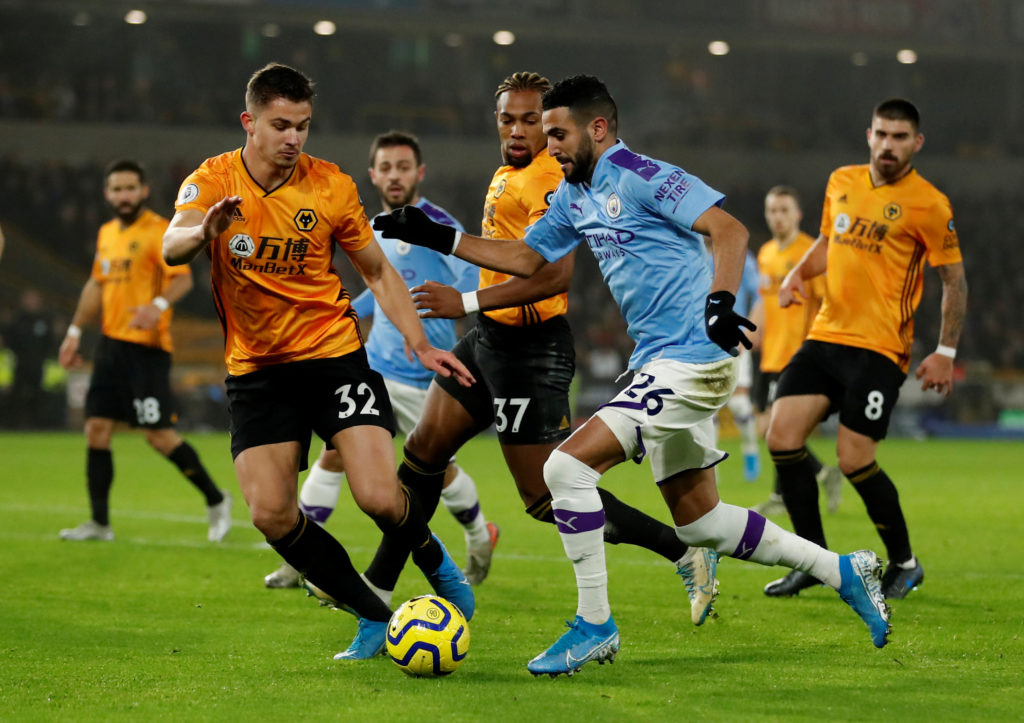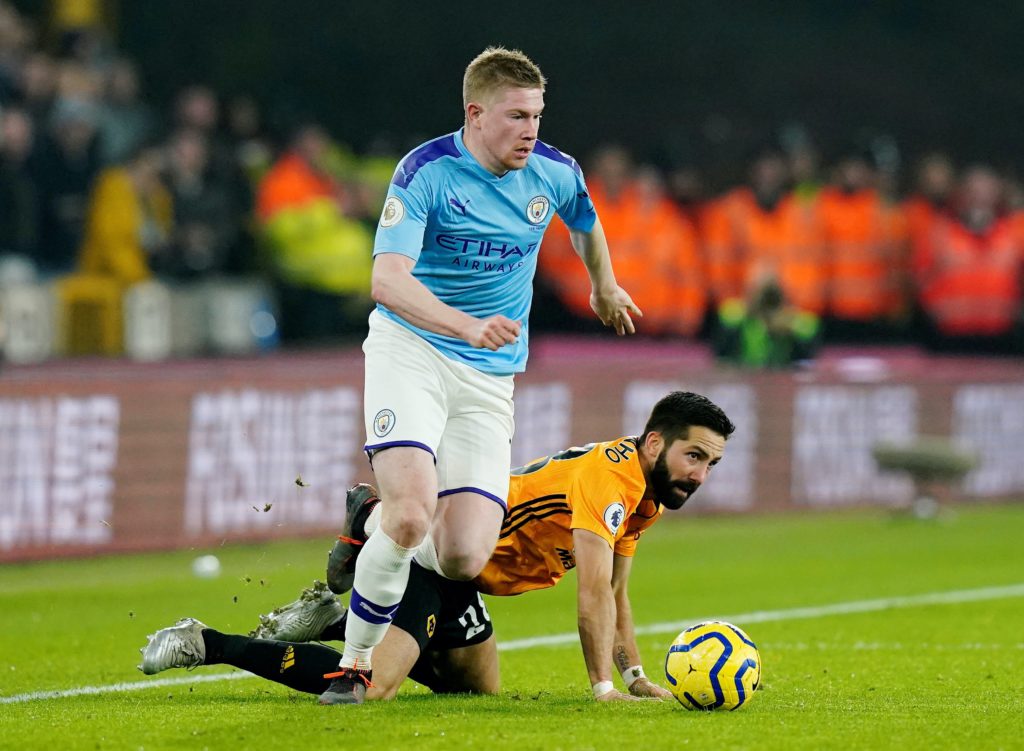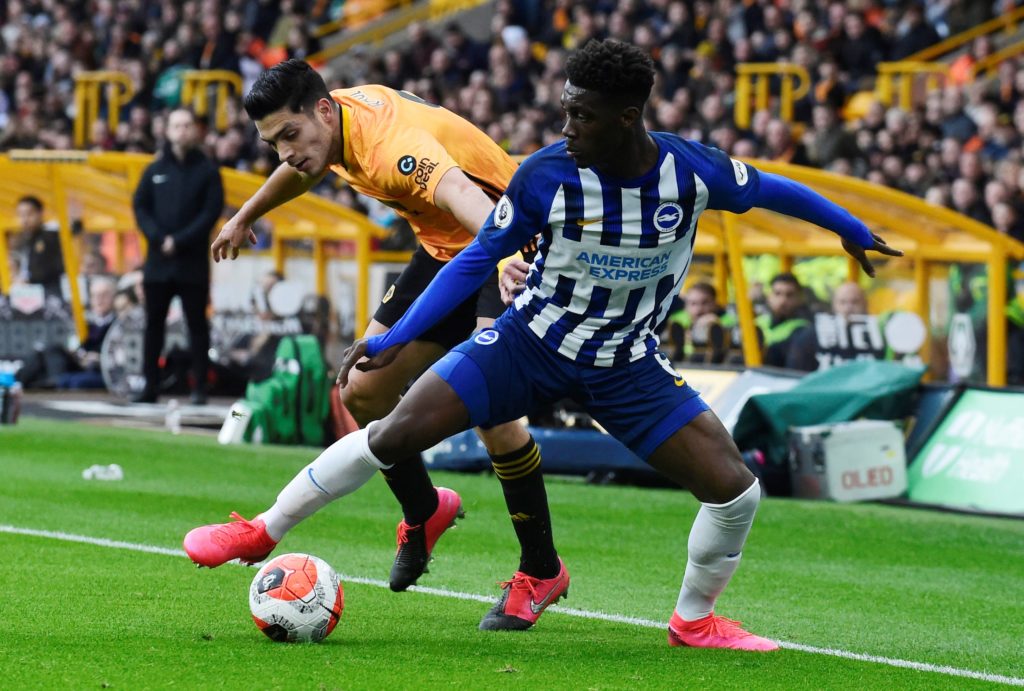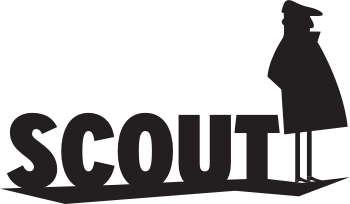The strengths of some of the great managers of the past, like Sir Bobby Robson or Sir Alex Ferguson, lay in their intuition and man-management skills. But data gives us an opportunity to be even smarter and more objective. It doesn’t mean we should ignore human intuition. They can complement one another.
– Matthieu Lille-Palette, Senior Vice President of Opta
Eye test versus Stats – the perennial debate among Fantasy managers.
Subjectivity versus objectivity.
The irony is that stats are produced by people using their eyes. But these trained loggers and data collectors see the game quite differently to the average football fan.
They record every on-ball event following strict guidelines. And this impacts us as Fantasy managers not only in the way we discuss football, but also because Opta stats underpin FPL’s Bonus Points System.
READ MORE: Everything you ever wanted to know about the FPL Bonus Point System – part one
As well as exploring the structure of the BPS, this article will go into detail on how Opta ‘see’ a match – how they translate match events into statistics.
It ignores the headlines such as goals, assists and cards, because they don’t require much interpretation, and instead focuses on the actions that make up the Baseline BPS.
Exciting things like tackles and recoveries! Things that are very common in a football match and, because of their frequency, play a part in determining who ends up with bonus points.
The Frequency of Bonus Point Events
(click on image to enlarge)
The graphic above illustrates that frequency. It does so by averaging the totals for the top ten players in each metric over the last five seasons. So, for instance, the ten players who do best in recoveries will make an average of 336 in a season.
The most recoveries made over that period was 403 by Jordan Pickford in 2017/18, his first season at Everton.
However, the value of a recovery is diminished because you need to make three in order to get one point in the BPS. Indeed, the most common bonus point events are worth the least.
Points Awarded in the BPS
(click on image to enlarge)
So multiplying the two together – frequency and points – gives a better picture of which events are important.
Frequency of Bonus Point Events multiplied by Points
(click on image to enlarge)
The resulting image adds further weight to Neale’s assertion that “the Bonus Points System is, unquestionably, the forward’s friend in its current guise.”
And this makes sense: that forwards benefit from the BPS compensates for them receiving fewer FPL points for scoring a goal.
But forwards aren’t dominating the bonus points this season because there are also several ways in which they lose out in the BPS. Along with a handful of wingers and attacking midfielders – notably Mohamed Salah – centre forwards are the main culprits for missing big chances, shooting off target and getting caught offside.
The chart above also shows that clean sheets are more valuable than goals for defenders. In the last five years, the top ten players kept an average of 17 clean sheets per season compared to only four goals per season for the leading marksmen in defence.
The reason the BPS doesn’t favour goalscoring defenders is because they get six FPL points for each goal, the most of any position. So while Stuart Dallas tops the defender standings by 20 points he is only joint-seventh when it comes to bonus.
But Dallas is an outlier – his eight goals this season is more than any other FPL defender since Joleon Lescott in the 2007/08 season. Even out-of-position John Lundstram bagged just five goals in 2019/20.
Over the last decade the only defenders to come close are Marcos Alonso in 2017/18 and Martin Škrtel in 2013/14, who both netted seven times.
That pair performed similarly to Dallas in terms of bonus: Alonso earned 15 performance-related marks which, along with his 13 clean sheets, helped him to 165 points and a place in the end-of-season dream team; and Liverpool centre-back Škrtel picked up 16 bonus points, although with just eight clean sheets his final tally of 137 was some way off the 169 required for the dream team that year.
Profit share
Moving beyond the goals and clean sheets, there’s a nice balance to the BPS.
For instance, assists and recoveries are of roughly equal importance, according to the weighted graphic above, but they favour very different types of players. Attacking midfielders and wingers are the main positions that supply assists, whereas goalkeepers, centre-backs and defensive midfielders make the most recoveries.
When identifying the top ten players for each metric over the last five years, to add more detail to the four basic positions in FPL, their playing positions according to Transfermarkt have been included.
The table below, created ahead of Gameweek 34, lists the twelve players with at least 20 bonus points.
| Player | Bonus | Pos. FPL | Pos. TM | BPS | Minutes | BPS/90 | Club |
| Kane | 37 | FWD | CF | 797 | 2,633 | 27.2 | TOT |
| Fernandes | 32 | MID | AM | 792 | 2,824 | 25.2 | MUN |
| Son | 25 | MID | LW | 661 | 2,669 | 22.3 | TOT |
| Martínez | 24 | GKP | GKP | 710 | 2,880 | 22.2 | AVL |
| Alexander-Arnold | 22 | DEF | RB | 614 | 2,579 | 21.4 | LIV |
| Shaw | 22 | DEF | LB | 604 | 2,383 | 22.8 | MUN |
| Lacazette | 21 | FWD | CF | 446 | 1,864 | 21.5 | ARS |
| Gündogan | 21 | MID | CM | 563 | 1,861 | 27.2 | MCI |
| Pope | 20 | GKP | GKP | 609 | 2,700 | 20.3 | BUR |
| Vardy | 20 | FWD | CF | 571 | 2,399 | 21.4 | LEI |
| Meslier | 20 | GKP | GKP | 715 | 2,880 | 22.3 | LEE |
| Cresswell | 20 | DEF | LB | 609 | 2,752 | 19.9 | WHU |
The distribution of FPL playing positions couldn’t be more evenly balanced with three forwards, three midfielders, three defenders and three goalkeepers included.
The list also features players from ten different clubs, which indicates that perhaps each team has a bonus-point talisman or bonus-point magnet. Players that are especially effective within their side’s playing style.
But looking at the more detailed playing positions, a slightly different picture emerges. The three defenders are all creative full-backs – see part one to understand how compound events and crosses help the likes of Trent Alexander-Arnold in the BPS – while the midfielders occupy attacking roles.
Although he’s a centre-mid according to Transfermarkt, Ilkay Gündogan is the leading goalscorer for Manchester City this season and his 21 bonus points have all come in matches in which he’s either scored or assisted.
The obvious omissions are centre-backs and defensive midfielders. A criticism of the BPS, and more broadly FPL itself, is that these players are undervalued:
If FPL is a simulation based on the real game then some way should be found to recognise the important, often vital contributions of the likes of Kanté, Rodri, Fabinho, Højbjerg & Rice. They are hugely influential for their clubs and yet pretty worthless for FPL purposes.
– Ruth_NZ
Given the current structure of FPL, should the bonus point system compensate defensive midfielders in the same way it does forwards?
Forwards earn fewer FPL points than midfielders or defenders for scoring a goal but that’s counterbalanced with greater reward in the BPS. In the same way, could defensive midfielders be better rewarded for their actions on a football pitch given that they only get one point for a clean sheet and rarely pick up attacking returns?
It’s a sentiment shared by many but not all:
Bonus points amplify success and failure. This adds to the highs and lows that make the game so compelling. The game is called fantasy football. Defensive midfielders are not fantasy footballers.
– Baines on Toast
Another factor to consider in this debate is that while the Bonus Points System hasn’t changed since 2015/16, trends in football have changed, including the way Opta record certain stats.
It’s time to pay a visit to the Opta-metrist!
Opta Vision
Wolverhampton Wanderers vs Manchester City 2019/20
(see video link to Wolves YouTube channel)
Opta’s eyesight is 20/20.
At first glance Moutinho’s corner appears to be flicked on by Jimenez. Even the commentator is fooled. But on closer inspection (go fullscreen and use the “>” and “<” keys to go through the video frame-by-frame), it’s revealed that Jimenez directs his header towards goal and the ball loops up off De Bruyne.
Opta logged this as a shot from Jimenez and a shot blocked by De Bruyne.
The aim, when recording these events, is to document the story of the match.
The stats provide an accurate account of every on-ball event that took place in the game. And, through the use of video analysis, that record is arguably more accurate than what we see with the naked eye.
However, Opta don’t capture the off-ball events – and this is where the ‘eye-test’ can complement the stats. For Opta, if a player isn’t directly involved in the action, they are essentially invisible. So players getting into good positions, making runs into the box, will be missed by Opta if they don’t get picked out by a team-mate.
Average position by Gameweek for Ilkay Gündogan
This means that average player position is determined from on-ball events only.
Over 90 minutes a player could be involved in anything from 40 to 100 events. The majority of these will be passes but shots, tackles, blocks, fouls, aerial duels, etc., also log their pitch location. In total, 33 different event types are taken into account.
Similarly, when we talk about the number of touches a player had, it isn’t, pedantically, every touch of the ball but rather the sum of selected actions. So, for instance, a player might touch the ball two or three times when dribbling past an opponent but that would be recorded as one touch because it’s one event.
Opta do produce tracking data for player movements, but this is not currently part of FPL and isn’t included in the advanced feeds we get. More on the future of stats in part three.
The Emirates has never sounded so good
To explain how Opta record match events we’ll mainly refer to Wolverhampton Wanderers against Manchester City from last season.
Firstly because it’s a terrific game of football, and secondly because it’s one of the few recent matches that can be found in full on YouTube.
It was the last fixture of Gameweek 19 and kicked off on a Friday night just a few hours before the Gameweek 20 deadline on Saturday morning – an example of the at times lightning-quick turnaround mentioned in part one.
It took place at a fervent Molineux stadium. A word of warning – it’s quite emotional watching a game with fans. While the Emirates may never have sounded so good with fake crowd noise, that’s definitely not the case at Molineux. The passion and the atmosphere contributed immeasurably to the spectacle.
The Story of the Match
From the kick-off Man City looked to attack.
Here’s how Opta chronicled the first 20 seconds:
Sergio Aguero successful 14.9 meter ‘Pass’; Rodri successful 42.8m ‘Pass’; Kyle Walker successful 4.6m ‘Pass’ (images 1 & 2); Riyad Mahrez successful ‘Take On’ (image 3); Joao Moutinho ‘Challenge’ (image 3); Mahrez successful 5.4m ‘Pass’; Aguero successful 4.3m ‘Pass’, a ‘Lay-off’; Mahrez failed ‘Take On’ (images 4 & 5); Leander Dendoncker ‘Tackle’ lost (images 4 & 5); Bernardo Silva successful 13.7m ‘Pass‘; Raheem Sterling successful ‘Take On’ (images 6 & 7); Ruben Neves ‘Challenge’ (images 6 & 7); Sterling failed ‘Take On’ (images 8 & 9); Matt Doherty ‘Tackle’ won (images 8 & 9); Matt Doherty ‘Ball Recovery’.
Together with the pitch coordinates of each event, the angle of each pass relative to the direction of play and the end coordinates of the pass, that’s basically the Opta transcript of the opening passage of play.
Let’s look a little closer at those events.
What Happened Next?
There were two tackles in that sequence: a ‘tackle lost’ from Leander Dendoncker and a ‘tackle won’ from Matt Doherty.
Whether a tackle is won or lost depends on where the ball goes after the tackle.
So Dendoncker’s tackle is lost because the loose ball is collected by an opponent, Bernardo Silva, whereas Matt Doherty not only tackles Raheem Sterling but wins possession of the ball.
And for a tackle to count as ‘won’ it doesn’t have to be the player making the tackle who recovers possession, as long as the ball falls to a team-mate.
In the above example, Adama Traoré is tackled by Fernandinho but Bernardo Silva is on hand to pick up the loose ball (see video link to Wolves YouTube channel).
Fernandinho is credited with a tackle won and Bernardo Silva a ball recovery.
For every action, there is an equal and opposite reaction

For both the ‘tackle lost’ from Dendoncker and the ‘tackle won’ from Doherty, the attacking player was given a failed ‘Take On’ or Dribble.
So because Riyad Mahrez was dispossessed, a failed ‘Take On’/Dribble was recorded. Even though Dendoncker didn’t win possession for Wolves, Mahrez failed to evade Dendoncker’s tackle.
In terms of the BPS, Mahrez is docked a point for being tackled – the single biggest factor in reducing a player’s likelihood of gaining bonus points.
There’s always this balance of attacking and defensive actions with each ‘Take On’.
The one exception to this rule is when the attacking player overruns the ball, when this happens there’s no corresponding defensive action.
In fact, that’s the only difference between a ‘Take On’ and a ‘Dribble’: if a player loses the ball by overrunning it, that’s counted as a failed ‘Dribble’ but not a failed ‘Take On’ – because he wasn’t attempting to beat anyone.
A successful ‘Take On’ and a successful ‘Dribble’ are exactly the same.
And for both the successful ‘Take Ons’ in the opening sequence, a failed ‘Challenge’ was given to the defending players.
Joao Moutinho got nowhere near the ball when attempting to tackle Mahrez, and likewise Ruben Neves was soundly beaten by Sterling and didn’t touch the ball.
Challenging the BPS

A ‘Challenge’ is always a negative event:
A player unsuccessfully attempts to tackle an opponent, making no contact with the ball as the opponent dribbles past them.
– Opta definition of a Challenge
But a ‘Challenge’ makes no difference when it comes to Bonus Points, which is good news for Moutinho because in each of the last two seasons no player has registered more. He had 82 ‘Challenges’ in 2018/19 and 93 in 2019/20, the highest totals over the last five years.
In other words, he’s rubbish at tackling.
It seems slightly unfair, therefore, that Dendoncker is marked down in the BPS despite being better at tackling than Moutinho. Dendoncker stopped Mahrez from progressing and was perhaps unfortunate that a team-mate wasn’t on hand to pick up the loose ball.
Nonetheless his ‘tackle lost’ is deemed an ‘unsuccessful tackle’ by the BPS.
Although Dendoncker doesn’t earn negative points, he does in a way because each ‘unsuccessful tackle’ is subtracted from the total ‘successful tackles’. And yet, according to Opta, the ‘unsuccessful tackle’ was in fact successful by definition:
Both [tackle won and tackle lost] are deemed as successful tackles however, the outcome of the tackle (won or lost) is different based on where the ball goes after the tackle.
– Opta definition of a Tackle
Perhaps, then, rather than awarding points for a tackle based on whether possession was won or not, should the BPS instead distinguish between a ‘Challenge’ and a ‘Tackle’, or just credit all ‘Tackles’ positively?
This would boost the BPS scores of the likes of Kanté, Ndidi, Rice, and Wan-Bissaka.
Although there exists a slight bias in the rules in favour of full-backs like Aaron Wan-Bissaka, or any player who makes a tackle close to the touchline, because the outcome of a ‘Tackle’ is also considered ‘won’ if the ball goes out of play.
So the tackler doesn’t necessarily have to win possession – the ball can go out for a throw-in or corner to the opposition – he simply has to stop the possession sequence.
As you can see in these examples taken from Manchester United’s defeat to Burnley in Gameweek 24 last season, Wan-Bissaka is very good at these types of tackles: example 1, example 2, and example 3.
Over the last five years the vast majority of players who make tackles without winning possession or knocking the ball out of play are defensive and central midfielders.
A rule tweak to successful and unsuccessful tackles in the BPS would benefit these undervalued “water-carriers” (an Eric Contona reference about Didier Deschamps for those too young).
Defining Tackle

In the Premium Members Area, we are specific about the outcome of the tackle, referring to ‘Tackles Won – Possession’ and ‘Tackles Won – No Possession’. Even if ‘Tackles Won – Possession’ includes a ball going out of play when possession isn’t necessarily won.
Our stat ‘Tackles Won’ is the equivalent to Opta’s ‘Successful Tackles’ or simply ‘Tackles’. As mentioned, all Opta tackles are by definition successful.
And we term an Opta ‘Challenge’ as a ‘Tackle Lost’, which reflects the logic that ‘Challenges’ are always lost. Although, admittedly, this is not the same as an Opta ‘Tackle Lost’, a stat we refer to as ‘Tackles Won – No Possession’.
Finally, the Fantasy Football Scout metric ‘Tackles’ is the total of ‘Tackles Won’ plus ‘Tackles Lost’, or Opta’s ‘Tackles’ plus ‘Challenges’.
Hopefully this table helps to make sense of the different naming conventions:
| Opta | BPS | FFS |
| Tackle | Tackle | Tackle Won |
| Tackle Won | Successful Tackle | Tackle Won – Possession |
| Tackle Lost | Unsuccessful Tackle | Tackle Won – No Possession |
| Challenge | – | Tackle Lost |
| Tackles + Challenges | – | Tackles |
| Tackles Won – Tackles Lost | Net Tackles | Net Tackles |
Tackle terminology
Looking at the data for this campaign reveals that Antonio Rüdiger has been the most effective tackler, only one of his 30 tackles was counted as a ‘Tackle Lost’ or Opta ‘Challenge’.
While the worst culprit for ‘Tackles Lost’ is Moutinho’s countryman Bruno Fernandes. As the most-popular player in the game, his owners are no doubt delighted that these are ignored by the BPS!
In terms of ‘Net Tackles’, the difference between successful and unsuccessful tackles in the BPS, Yves Bissouma leads the way in 2020/21. Perhaps this explains why Manchester City are keen to buy him.
However, it’s not Bissouma but Luke Ayling who tops the list of Opta’s successful tacklers, or ‘Tackles Won’ as we term it.
Coming up
The complexity surrounding tackles doesn’t end there.
Last year Opta’s parent company, the Perform Group, merged with STATS to create Stats Perform. With this union three new event metrics were added to Opta’s lexicon, including ‘Attempted Tackles’.
In part three we’ll discover what impact this had and how it affects the BPS, we’ll also look at events that aren’t tackles(!) and explore some of the blurred lines that exist in football stats.
And, as well as finding out what the future holds for sports data, we’ll see how some players are occasionally too good for the way stats are recorded, which, at times, leads to their abilities being overlooked.



3 years, 7 months agoIn before the first conspiracy theorist claims that "ThE tOweRs PreFer BrUno AnD he alWaYs geTs BOnUs."